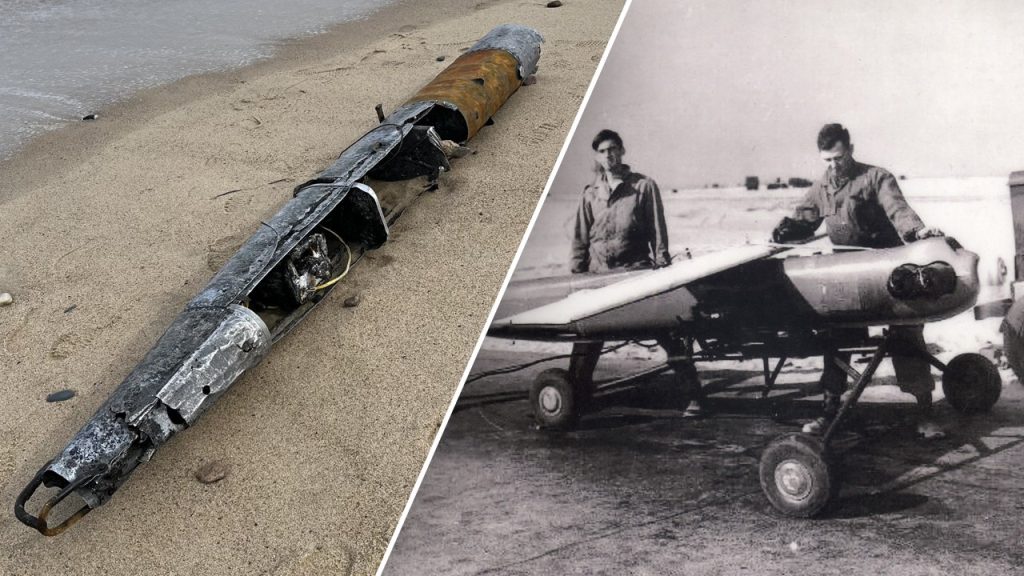Officials on Cape Cod have solved a piece of history after a mysterious object dating back to the Cold War was found on Marconi Beach in Massachusetts. The artifact, resembling an aircraft fuselage, was found in early April and was quickly removed by beach staff before being swept away by an incoming storm. Upon further examination, it was determined that the object was the fuselage of a RCAT (Remote Control Aerial Target) from a top-secret Cold War program.
The RCAT was a drone plane used for target practice for anti-aircraft training at a former United States military training camp called Camp Wellfleet during the 1940s and 50s. These drones were used in an informal training camp that few people knew about. The aircraft equipped with an RCAT would take off from a defunct runway in the woods of Wellfleet, rocket-launching the RCAT at high speeds and controlling it remotely from a bluff. The program was considered state-of-the-art and top secret at the time.
Despite the primitive nature of the RCAT program compared to modern technology, the training provided essential experience to anti-aircraft gunners throughout the country prior to engaging in war. The Camp Wellfleet RCAT program was crucial in preparing individuals for combat situations and was classified as top secret at the time. Officials from National Park Services have not revealed any plans for the recovered RCAT, but the discovery sheds light on an important piece of Cold War history hidden on the shores of Cape Cod.
The discovery of the RCAT fuselage on Marconi Beach has added a fascinating chapter to the history of Cape Cod National Seashore. The artifact, once used for target practice and training purposes, represents a time when military technology was rapidly advancing and top-secret programs were in place to prepare for potential conflicts. The RCAT program, while now considered outdated, played a significant role in training anti-aircraft gunners and individuals involved in national defense.
The identification of the RCAT fuselage as a piece of Cold War history has sparked interest in the community and among historians. The artifact, initially mistaken for a missile or UFO fragment, has now been linked to a specific military training program that took place on Cape Cod several decades ago. The recovered relic serves as a reminder of the important role that the area played in national defense during the mid-20th century, offering a glimpse into a lesser-known aspect of military history in the United States.
The preservation of the RCAT fuselage and the acknowledgment of its historical significance by Cape Cod National Seashore officials highlight the importance of understanding and commemorating past military programs. The artifact serves as a tangible connection to a time when national security concerns were at the forefront of government initiatives, and innovative technologies were developed to address these challenges. By uncovering and sharing the story of the RCAT program, officials have contributed to the broader narrative of Cold War history and the role of remote-controlled aircraft in military training. The mystery surrounding the object’s origins has been solved, but its legacy continues to captivate those interested in the intersections of technology, warfare, and historical preservation.


